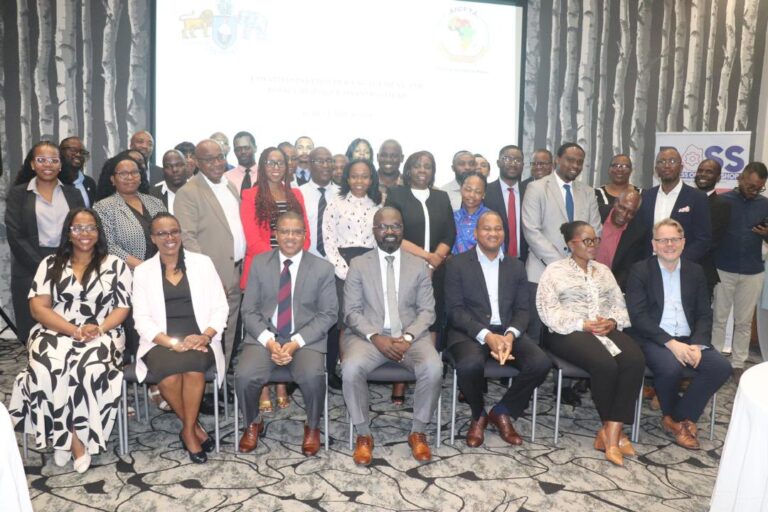Africa is on the cusp of a new era of prosperity as a manufacturing centre for high-tech industries and a key link in global supply chains, a new report from the United Nations trade body United Nations Conference on Trade and Development (UNCTAD) says.
As the African single market – the African Continental Free Trade Area (AfCFTA) – begins operations, UNCTAD says that, with its rich natural resources and growing consumer demand, the continent is well positioned to transform its economic fortunes.
AfCFTA, which was officially launched in 2021, is focusing on operationalizing the agreement through initially eight nations concentrating on trading 96 products. When fully realized, the AfCFTA will create the world’s biggest free trade area, home to 1.7 billion people.
“This is Africa’s moment to bolster its position in global supply chains as diversification efforts continue. It’s also an opportunity for the continent to strengthen its emerging industries, foster economic growth and create jobs for millions of its people,” said UNCTAD Secretary-General, Rebeca Grynspan.
Raising wages across Africa
Launching UNCTAD’s Economic Development in Africa Report 2023, Grynspan said creating an environment conducive to technology-intensive industries would help raise wages across the continent, increasing prosperity and driving domestic consumer demand.
In January 2023, the World Economic Forum’s Insight report, AfCFTA: A New Era for Global Business and Investment in Africa, predicted that combined business and consumer spending across Africa could total $6.7 billion by 2030 thanks to the free trade deal.
It said the four sectors that were likely to be the fastest growing due to rising local demand and their suitability for local production were: automotive; agriculture and agro-processing; pharmaceuticals; and transport.
Discover
How is the Forum helping to navigate global value chain disruption?
The world economy is facing a perfect storm of disruptive megatrends, ranging from the climate crisis to geopolitical tensions and emerging technologies. These are challenging the foundations on which global value chains are built. And while issues affect various industry sectors in different ways, there are unique opportunities for pioneers to build resilience and shape the supply chains of the future.
The World Economic Forum has been working with a community of manufacturing and supply chain leaders to anticipate how manufacturing companies can best move beyond reactively responding to disruptive forces towards proactively building the right set of capabilities to ensure long-term and sustainable resilience.
This work has resulted in the co-development of the resiliency compass, a unique framework aimed at helping manufacturing organizations assess their current level of resilience across eight dimensions:
- portfolio excellence
- customer orientation
- financial viability
- go-to-market versatility
- logistics flexibility
- manufacturing adaptability
- supplier diversity
- advanced planning

Through our work across industries and geographies, we also identified five profiles of resilience leadership, reflecting distinct priorities and approaches to starting and navigating a resilience journey: the collaborator; the planner; the enhancer; the adapter; and the provider.
To further help firms build and implement new resilience efforts and roadmaps, a series of strategy playbooks were co-developed in close collaboration with members of the Platform for Shaping the Future of Advanced Manufacturing and Value Chains. These playbooks outline the set of actionable strategies employed by leaders within each resilience profile to fortify their value chain.
Supply chain sweet spots
The UNCTAD report focuses on technology-intensive supply chains and industries which it says have the potential to make the biggest impact on Africa’s economies, and its analysis mirrors the conclusions of the Forum’s report.
It says there are opportunities in growing demand for electric vehicles, mobile phones and solar panels. Public health would benefit from African businesses playing a bigger role in pharmaceutical and medical device supply chains. And better resource supply chain integration would aid sustainable development.
There are opportunities for Africa in growing demand for electric vehicles, mobile phones and solar panels. Image: UNCTAD
The UNCTAD report says: “As the global economy adapts to climate change … there will be a rise in the demand for specific metals with utility in the low-carbon transition and green mobility, for instance, aluminium, cobalt, copper, lithium and manganese.
“Given the abundance of these minerals, in particular key metals required for the low-carbon transition, the continent can reposition itself as a supplier of raw materials for global supply chains. In fact, 48.1% of global cobalt reserves and 47.6% of global manganese reserves are located in Africa.”
By relocating to Africa, high-tech industries like electric vehicles and mobile phones would be closer to supplies of specialised raw materials and new markets, says Senegal’s Minister of Economy, Planning and Cooperation in a preface to the UNCTAD report.
Deeper integration into global supply chains would also diversify African economies, boosting their resilience to future shocks, and would have the added benefit of making global supply chains more resilient too, the report says.
To facilitate the matching of foreign and domestic firms and create sustainable supply chains, the World Economic Forum has been working on creating Supplier Databases with Sustainability Dimensions, known as ‘SD2s’, initially in Cambodia and now in Namibia, each time in partnership with the country’s development agency.
“Supplier databases can help foreign firms find qualified domestic firms with which to partner, thereby increasing investment interest and development impact,” said Matthew Stephenson, Head of Investment Policy and Practice at the World Economic Forum. “By including information about domestic firms’ sustainable operations within the database, this will help domestic firms be more attractive as suppliers for multinationals looking to manage their supply chains in a sustainable manner”, he continued.

Africa’s solar potential
Africa also has “vast renewable energy potential”, especially in solar which would reduce costs for manufacturers and reduce reliance on fossil fuels. Currently only 2% of global investments in renewable energy go to Africa, UNCTAD says.
Although not all countries in Africa might be able to produce solar panels themselves, the benefits to the climate, employment and economies of increased use of solar power would be “substantial”, with local entrepreneurs ready to step up if the opportunity was presented.


